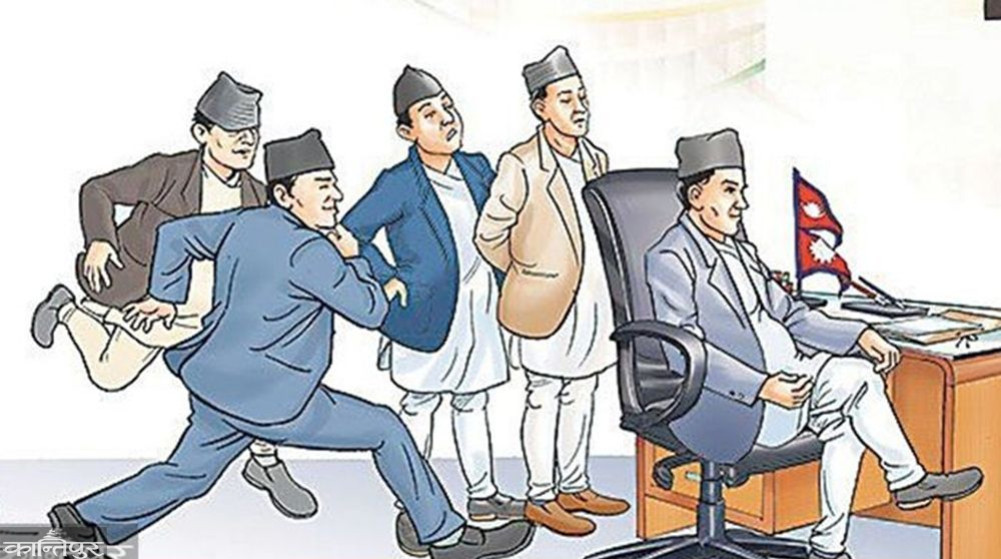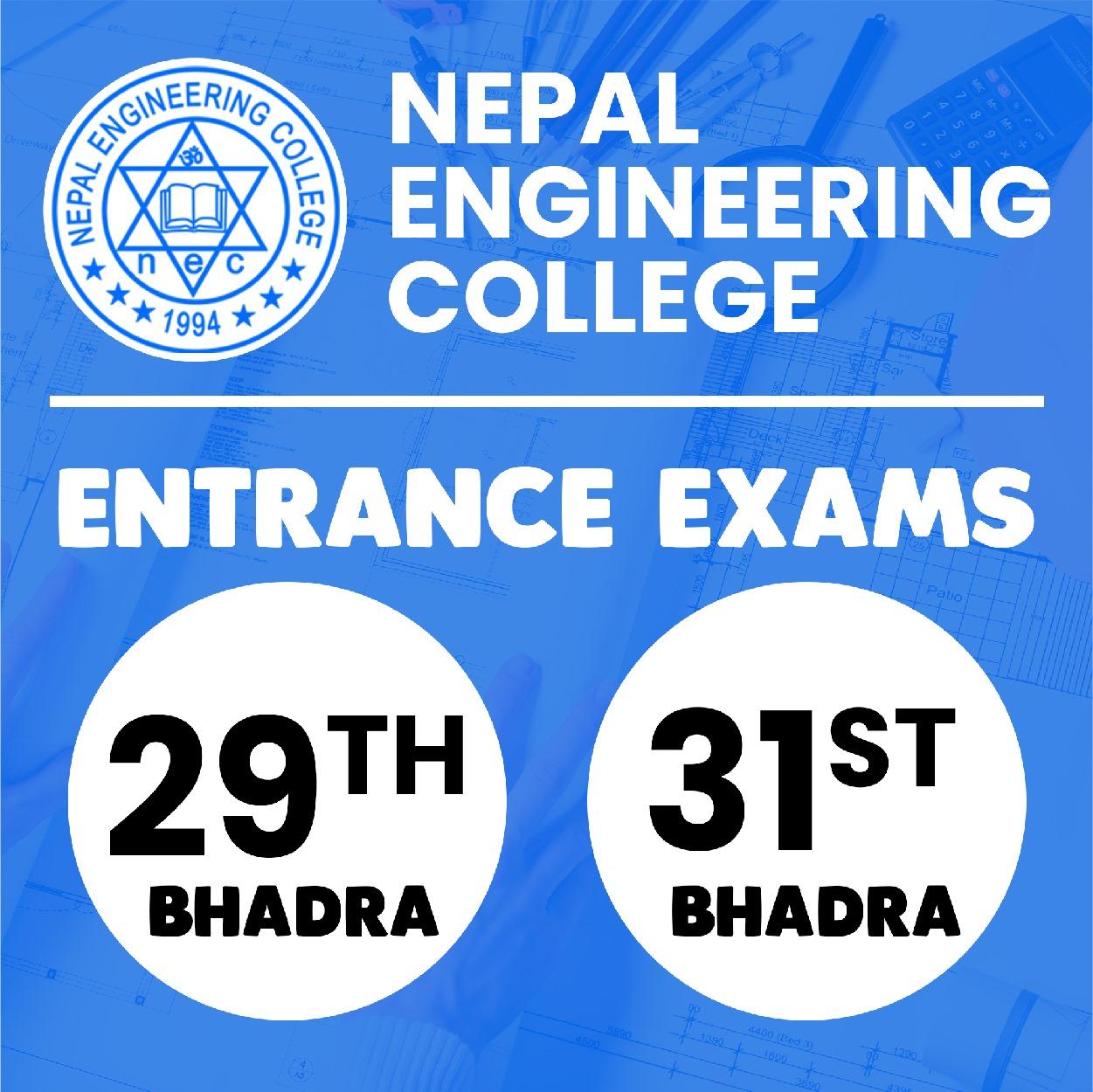A coup in the Far West shakes the ruling coalition
We use Google Cloud Translation Services. Google requires we provide the following disclaimer relating to use of this service:
This service may contain translations powered by Google. Google disclaims all warranties related to the translations, expressed or implied, including any warranties of accuracy, reliability, and any implied warranties of merchantability, fitness for a particular purpose, and noninfringement.


Dissatisfaction within the ruling Sahayatri Party has been felt in the Far West on Sunday, saying that Prime Minister Pushpa Kamal Dahal and UML President KP Sharma Oli are only acting in the power sharing and important decision-making processes of the government.



After the United Socialists (S) of the ruling coalition decided to support the alliance with the Congress on Sunday in the formation of the Far West government, the repercussions of this have fallen on the central ruling coalition. This has caused doubts about the future of the alliance.
There are two candidates from Civil Liberation Party for Chief Minister in Far West government. S, the partner of the power coalition, has decided to support Laxman Kishore Chaudhary, who has claimed the support of the Congress, while UML-Maoist has supported Kailash Chaudhary, another leader of Unmukta.
A leader of the Maoists said that the 'rebellion' of S MPs in the formation of the Far West government against the policy of the central coalition has raised doubts as to how long the power equation created a month and a half ago will last. The leaders of the AS claim that the roadmap of the 'rebellion' by the AS in the Far West within the coalition was created by the Baluwatar meeting on Sunday morning. Prime Minister Pushpa Kamal Dahal called UML President KP Oli, S President Madhav Kumar Nepal and Civil Liberties Party President Ranjita Shrestha to discuss the issues of the Far West government. In the Far West, S was claiming the Chief Ministership.
Before reaching the meeting in Nepal, Dahal, Oli and Shrestha had a one-on-one discussion in Baluwatar. As soon as he reached Nepal, Oli told us that it has been decided to give the leadership of the Far West government to civil emancipation, said Rajendra Pandey, the vice president of S. Said, 'After that, comrade Madhav, I heard your decision. We do not agree on this, it has come out that we should get the Far West, mistrust is increasing. There is no way to say what will happen.'
The dispute within the power alliance in the Far West incident was not created suddenly. According to Pandey, since Prime Minister Dahal took the vote of confidence on February 30, the behavior towards S has started to change. "We started being used and thrown away. The reaction seen in the Far West government is the product of that," Pandey added, "There is no trust behavior from the central alliance. If this is the case, long-term cooperation is not possible.'
Its leaders say that S's complaints are mainly about the distribution of power and non-compliance with the agreement. According to the S leaders, during the intense talks before Prime Minister Dahal took the vote of confidence, it was assured that the President of S Nepal would be kept in the role of Prime Minister, the Vice President of the National Assembly, a quota nominated by the President to the National Assembly, and a Chief Minister in one of Wagmati and Far West. However, the leaders of S have commented that UML President Oli has been inconsistent in the implementation of all kinds of agreements. While the decision to give UML's candidature to the House of Representatives of Elam and the Provincial Assembly of Bajhang is increasing dissatisfaction, the leaders of S said that the latest decision to give civil rights to the Chief Minister of the Far West Government has further irritated them.
CPN (S) with 10 MP seats in the new power coalition is becoming the main support for the Dahal-led government. The Dahal government has the support of 156 MPs, including 76 of UML (excluding the speaker and one suspension), 21 of RSVP, 12 of JSP, 10 of CPN (S) and 5 of Civil Immunity. The dispute about whether or not to participate in the civil liberties government is raging within the party. In such a situation, some leaders say that if S takes an unexpected decision, the alliance will be in crisis. Jaspa participated in the government only after Dahal joined the alliance with UML on February 21. There were two views within Jaspa on whether to participate in the
government or not. "Participating in the government was a condition for the continuation of the government of Madhesh-Pradesh. Madhesh state government led by us could not continue without the entry of S. We went to the government only after his entry,'' said a leader of Jaspa, "The government of Madhesh-Pradesh is our main priority even now. We will remain in the central alliance only as long as the government of Madhesh province remains assured.'
Maoist General Secretary Dev Gurung admits that the discontent within the coalition has started to raise doubts about the stability of the government. Gurung says that due to frequent instability, the parliamentary system, where 51 percent of the government is run, needs to be revised. He believes that the current disagreement within the ruling coalition is largely due to the existing mistrust between UML President Oli and S Nepal President. The Maoists are ready to leave everything to advance the alliance of the leftists. But the previous misunderstanding between Oli and Nepal has definitely created some uncomfortable situation," he said. "There is a situation when we go on the path of consensus, no, it is not my bull's eye and if we fight for positions, the situation can be anything."
Nepal has been proposing to support its party's candidate for the Chief Minister in the Far West and the provincial assembly of Bajhang, even though the assurances on the vice president and nominated members of the National Assembly have not been fulfilled. It was not possible to get S until the Chief Minister of the Far West was supported by Civil Liberties, but it could be arranged with Bajhang's candidate. There is some difficulty when UML decides in advance without consultation between the coalition parties," Gurung added, "If power and position are kept at the center, there may be a problem. However, if we want to maintain the unity of those who have similar views, there is still a place to meet.'
UML chief whip Mahesh Bertaula claims that there is no mistrust in the alliance that will change the central power equation. "There are some difficulties in moving the coalition government forward. It will also be managed. It may be said that this or that is necessary regarding the distribution of power. However, there is no truth in the comment that the government will leave and the coalition itself can bring about change,' he said, 'the main thing is trust. Whatever we have resolved to advance this journey to power, we should take it positively. Don't think that everything is over today. Management goes through.'
Dissatisfaction has been seen within the alliance, mainly in the S and Jaspa, regarding the working style of the government. They are dissatisfied with the government's decision to end the parliament itself by setting aside the demand raised by the main opposition Congress that a parliamentary inquiry committee should be formed regarding the involvement of Deputy Prime Minister and Home Minister Ravi Lamichhane in misappropriation of cooperative savings. The leaders of S and JSP supported the demand of the main opposition by saying that a parliamentary inquiry committee should be formed while speaking in the parliament meeting. However, after Prime Minister Dahal and UML President Oli opposed the parliamentary inquiry in defense of the Deputy Prime Minister and Home Minister Lamichhane, the leaders of S and Jaspa, who are part of the government, expressed their displeasure.
Jaspa leader Pradeep Yadav says that since the new alliance has not even passed 100 days, now is not the time to react. What a unified socialist does is his subject. However, we know very well that our government in Madhesh province will not continue unless he supports us. If the united party decides to withdraw from the government, then in the next situation, the party will take a decision after holding a meeting," said Yadav, "We voted for the coalition based on trust. Until today, we have not made up our mind to leave the alliance.'
Prime Minister Dahal has been arguing that he has to make an equation with UML since it is not possible to do something with the Huthuti Congress. After creating a new equation on February 21 and taking the vote of confidence on February 30, Prime Minister Dahal had said, "We have to cut the day and wait for time, which was not acceptable to the Maoists and to me as its president." I thought that it would be easier to remain the prime minister, no matter what happens, to protect the constitution and address the people's aspirations for development. I thought that the experience of one year was not good when it came to the end.'
For the reason that Dahal has been arguing that he has to change the alliance, in the space of one and a half months, Dahal has to spend more time in deceiving his fellow travelers and maintaining power. "Especially due to civil liberties, the bargaining of the Madhavjis has increased," says Gurung, "Madhavji left at the beginning of the alliance. Five teams were formed after mixing it up. Even though it was said to give freedom to Far West citizens, it was tried to be arranged in the provincial assembly by-election of Bajhang. Oliji was not in a position to leave. On the one hand, civil liberties must also be addressed, on the other hand, there is a situation in which Madhavji must also be brought together.'
 प्रकाशित : वैशाख ३, २०८१ ०६:४३
प्रकाशित : वैशाख ३, २०८१ ०६:४३

 २१.१२°C काठमाडौं
२१.१२°C काठमाडौं
















